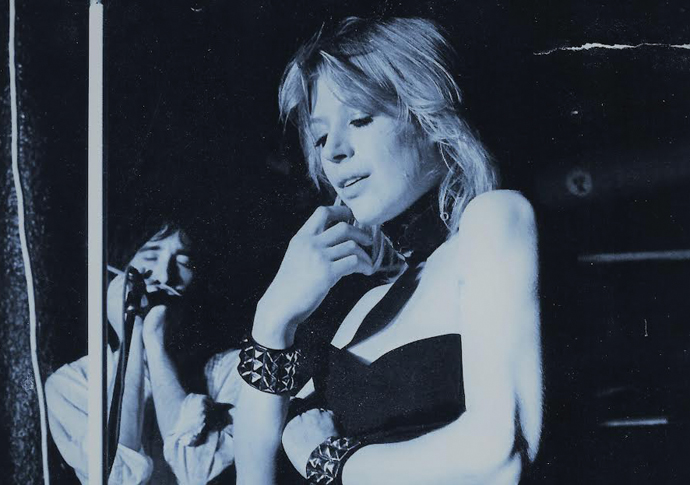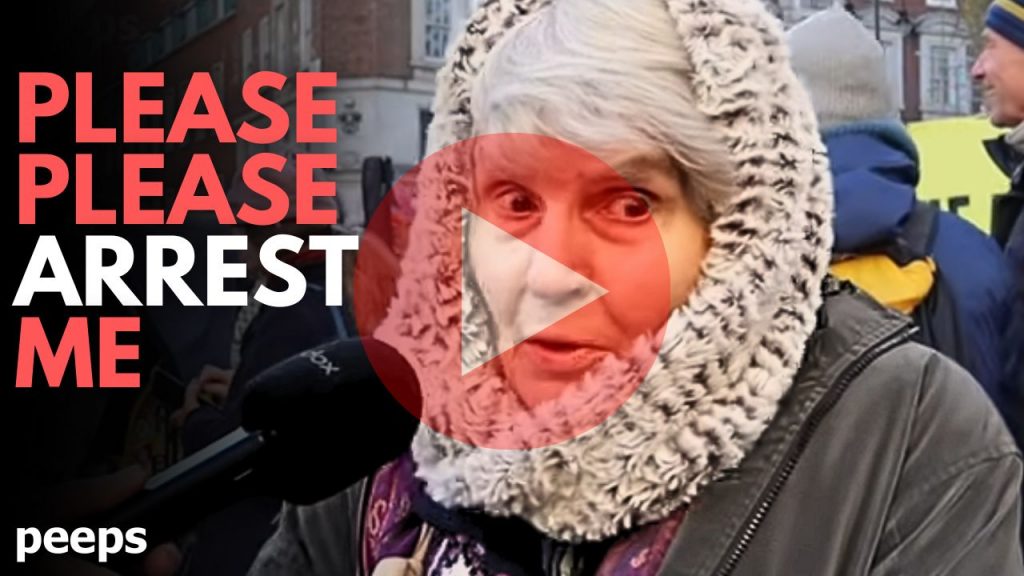Marianne Faithfull's little-known connection to Camden
Mike Baess remembers his time in Camden with a ‘fallen angel’
Friday, 7th February 2025 — By Mike Baess

Marianne Faithfull in full flood [Mike Baess]
WATCH OUR POLITICS CHANNEL, PEEPS, ON YOUTUBE
ROCK legend Marianne Faithfull, who died last week at the age of 78, had a vital but little known connection to Camden.
Her story actually starts in Hampstead as she was born at the old Queen Mary’s Maternity Home, which was at 124 Heath Street and closed in 1975.
After her parents divorced, Marianne moved with her mother to Reading – her mother Eva was a descendant of famous Sacher-Masoch nobility from Austro-Hungary.
Her father Major Glynn Faithfull, was a professor of Italian literature at Bedford College in Regent’s Park and was still teaching there in the 70s.
After initially bursting onto the pop scene as a folk singing starlet and then being drawn into the decadent lifestyle of The Rolling Stones Marianne’s career and life plummeted when her then boyfriend, Mick Jagger, left her.
She was homeless for many years, begging for money on the streets of Soho and sleeping rough during the early 70s until through the help of friends, she regained her self-respect.
“I lived on a wall in Soho,” she told The Guardian in 2007. “That world, the Soho sex trade, must have all been going on around me, but I didn’t even notice. It’s very, very strange to think about it. It was such a degraded moment, to live on a wall and shoot drugs.”
As she got stronger she gained the strength to restart her music career and through 1977 and 1978 she often played low-key gigs at Dingwalls in Camden Lock or at the old Music Machine, now the Camden Palace.
I attended quite a few of those gigs, often with my trusty Olympus OM1 camera, and watched as this fallen angel with a broken wing slowly learned how to fly again.
One night, we literally bumped into each other and had a quick exchange. She saw my camera and asked if I’d taken any photos. I told I had and she said she would be eager to see them.
“How do I get them to you, Marianne”, I asked.
“Bring them round to my place in Danvers Street, Chelsea,” she said, in a slightly shaky voice.
She gave me her address but I never followed it up – perhaps a little too starstruck, or maybe even, a bit worried to see her in a less than salubrious state.
But she was slowly making her way back up and word got round that she had been signed by legendary Island Records label owner Chris Blackwell and was recording songs for her comeback album at Matrix Studio, in Little Russell Street.
The New Wave music scene was in its full glory in 1979 when Marianne released her wonderful comeback album Broken English, and from there on she began a remarkable and truly inspirational recovery – not only as a musician but for anyone who has ever hit rock bottom and thought that there was no way back.
Patti Smith, Courtney Love, Chrissie Hynde, Viv Albertine, Debbie Harry, Joan Jett, Stevie Nicks, Siouxsie Sioux, Madonna, Sinead O’Connor – in one way or another they all owed Marianne a massive debt for standing up to the one-time male-dominated rock ’n’ roll industry and changing the way women in the music business are viewed and treated.
As such she is owed a massive gratitude for making the music scene a more inclusive place for all.
So long, Marianne – you will be sorely missed.
